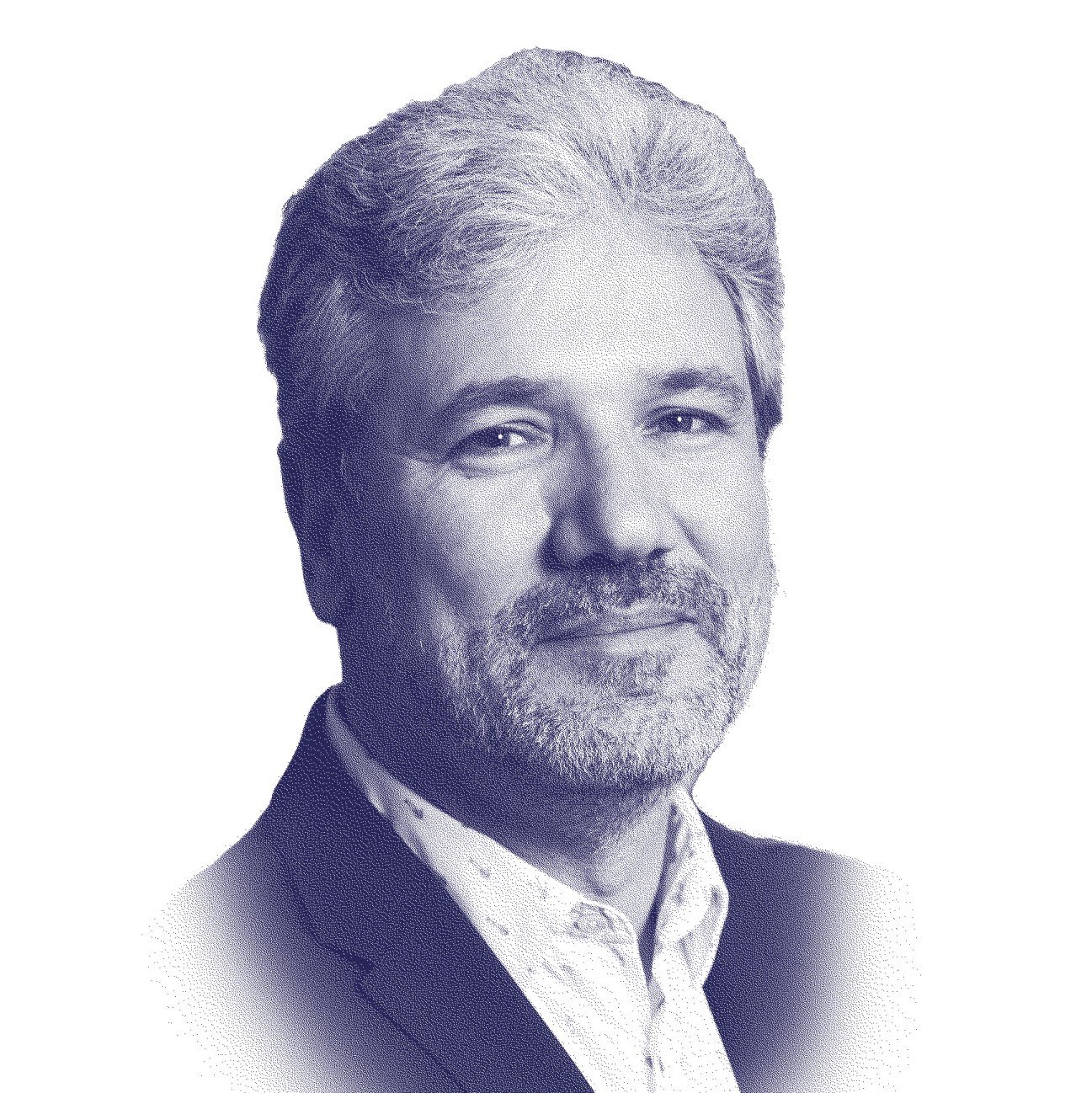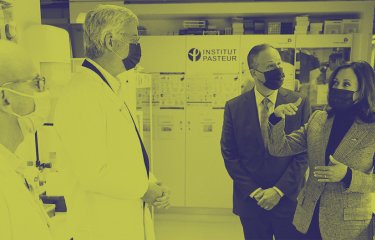Institut Pasteur Senior Executive Scientific Vice-President Christophe d'Enfert provides a brief, cross-disciplinary overview of 2021 covering capacity building, enhanced partnerships and future technologies.

The significant focus on COVID in labs did not prevent major breakthroughs in other key fields.
What scientific lessons should be learned from two years of pandemic?
The Institut Pasteur achieved a great deal. Modeling enabled us to monitor and forecast the development of the outbreak in France. Through the ComCor study, we gained insights into the epidemiology of the virus. The emergence of the Delta and Omicron variants was effectively monitored thanks to the expertise of our CNRs, which play a key role in our organization and are crucial for detecting emerging diseases. We produced monoclonal antibodies effective against all known variants through our startup SpikImm, and developed a nasal vaccine which is entering the clinical phase. Progress is being made in pinpointing the origin of the virus through work conducted by the Pasteur Network (Paris and Laos) on bats. Moreover, numerous articles were published on humoral immune response, ciliated cells, anosmia, etc. We can all be proud of the work achieved.
Haven't these successes hampered non-COVID research?
I can honestly say that we spared no effort in other areas despite continuing occasional lockdown restrictions. Within the field of antimicrobial resistance, Institut Pasteur teams joined forces with the off-site Microb'UP institute founded by Université Paris Cité. Neuroscience projects were launched with the Paris Brain Institute. In relation to cancer, an agreement with the Institut Curie will be renewed in 2022. And lastly, a unit will be set up to draw lessons from the pandemic and prepare for subsequent emerging challenges within a global context with our partners including the Pasteur Network.
Are partnerships crucial in science?
They have always been important and will become increasingly so in a competitive environment where it is advantageous to share expertise. The partnership with Université Paris Cité opens up opportunities in neuroscience, microbiology and immunology. Our Hearing Institute, which hosts Institut Pasteur and Inserm teams, is expanding its expertise to include language research. We are also investing in our own units.
What other investments have been made?
Eight long-term "COVID" projects were launched (p. 19) to gain insights into SARS-CoV-2 and COVID-19 over a sufficient period to allow proper analysis. Equipment funded within this context will boost our capacity for future research alongside the numerous technologies in which we are currently investing (single cell analysis, imaging, therapeutic molecule screening, artificial intelligence, etc.). We also have plans to build a vector-borne diseases center with an ad hoc working environment which is due to open by 2026. These projects will prepare us for the future and increase our capacity to respond to future emerging diseases.

New units and facilities in 2021
The Architecture and Dynamics of Biological Macromolecules/Architecture et dynamique des macromolécules biologiques Unit, affiliated with the Department of Structural Biology and Chemistry. |
The Neural Coding and Engineering of Human Speech Functions/Codage neural et ingénierie des fonctions de parole Unit, affiliated with the Hearing Institute. The Applied and Theoretical Neuroanatomy/Neuroanatomie appliquée et théorique five-year unit (U5), affiliated with the Department of Neuroscience. The Bacteriophage, Bacterium, Host/Bactériophage, bactérie, hôte five-year unit (U5), affiliated with the Department of Microbiology. The Advanced Molecular Virology/Virologie moléculaire avancée five-year unit (U5), affiliated with the Department of Virology. The Translational Immunology/Immunologie Translationnelle five-year unit (U5), affiliated with the Department of Immunology. The Molecular Mechanisms of Pathological and Physiological Ageing/Mécanismes moléculaires du vieillissement pathologique et physiologique five-year unit (U5), affiliated with the Department of Developmental and Stem Cell Biology. |
The Diagnostic Test Innovation and Development Core Facility/Plateforme d'innovation et de développement de tests diagnostiques, affiliated with the Center for Technological Resources and Research (C2RT), is supported by the Institut Pasteur Innovation Accelerator (AIIP). The Single Cell Platform and Biomarkers Platform/Plateforme Single Cell and Plateforme Biomarqueurs, in the Cytometry and Biomarkers UTechS (UTechS CB). |
The Plasmodium RNA Biology/Biologie des ARN de Plasmodium laboratory, affiliated with the Department of Parasites and Insect Vectors. |
The Evolutionary Cell Biology and Evolution of Morphogenesis/Biologie cellulaire évolutive et évolution de la morphogenèse five-year group (G5), affiliated with the Department of Cell Biology and Infection. |
Moreover, in 2021 the Institut Pasteur issued three calls for applications to form new groups (G5 and G5+), for which results will be announced in 2022, in the following areas:
- Computational Biology
- Cryo-electron microscopy and tomography
- Priority areas:
- Emerging Infectious Diseases with a focus on the interaction of epidemiological dynamics and evolution of pathogens,
- Antimicrobial resistance and novel antimicrobial strategies,
- Neuroscience: brain function and disease, in particular, leveraging the use of human models,
- Microbiome in human health,
- Single cell biology,
- Immunology with a focus on immunotherapy and cancer,
- Novel vaccine approaches.





